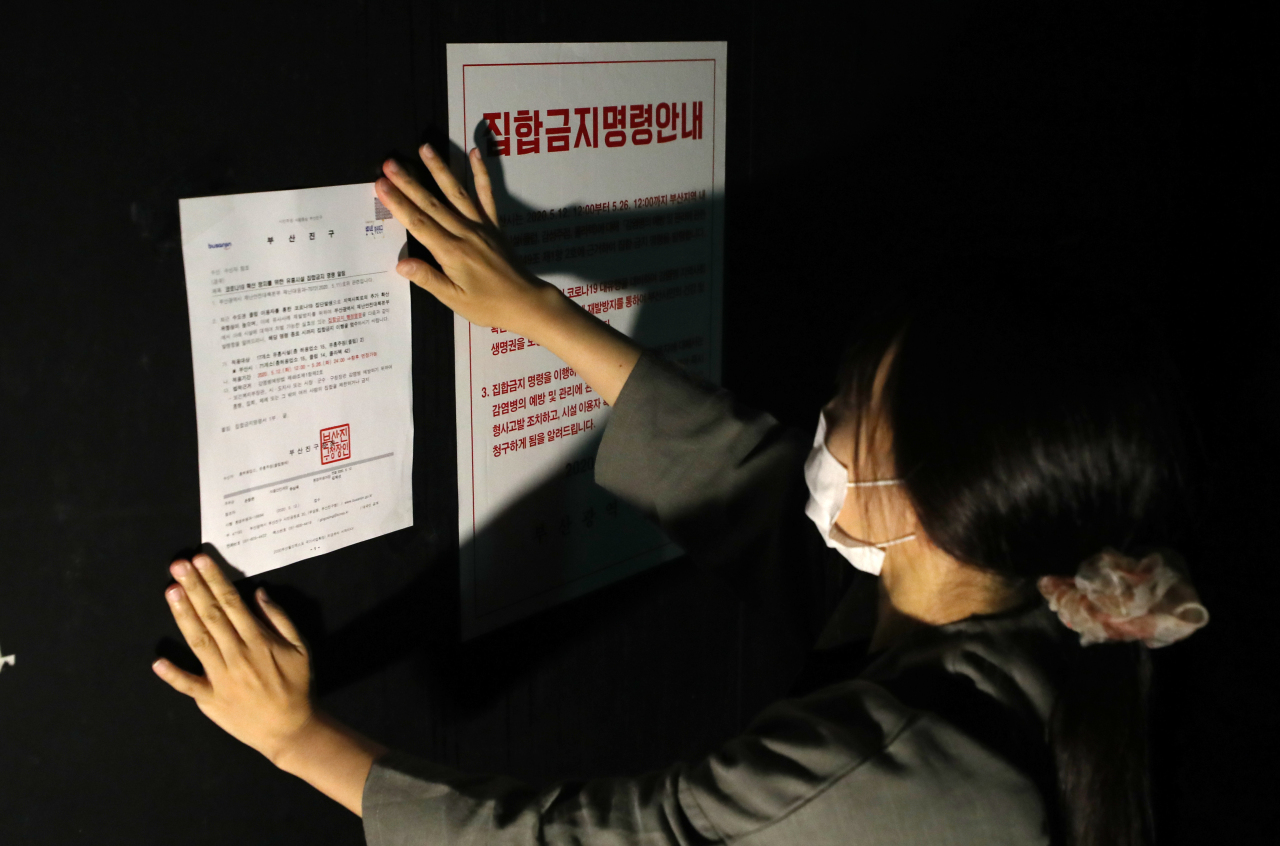Itaewon cluster infection brings light to Korea’s nightlife
Ban on nightlife establishments may lead to ‘balloon effect’
By Im Eun-byelPublished : May 12, 2020 - 16:42
As the Itaewon area in central Seoul has become the focal point of a potential second wave of new coronavirus infections in Korea, nightlife establishments are being shut down across the country.
Authorities are issuing administrative orders banning mass gatherings not just at “entertainment facilities,” referring to clubs and bars, but also some classified as “general restaurants,” such as singles bars and old-fashioned pubs, with concerns rising about a potential “balloon effect.”
For those uninitiated to the unique dynamics of nightlife culture in Korea, following are brief descriptions of some of the entertainment facilities being mentioned.
Authorities are issuing administrative orders banning mass gatherings not just at “entertainment facilities,” referring to clubs and bars, but also some classified as “general restaurants,” such as singles bars and old-fashioned pubs, with concerns rising about a potential “balloon effect.”
For those uninitiated to the unique dynamics of nightlife culture in Korea, following are brief descriptions of some of the entertainment facilities being mentioned.

Clubs
Clubs here are like most nightclubs found around the world. Clubs, often situated in party districts, have a dance floor where guests dance along to deafening music as DJs show off their moves onstage. Tables and rooms are available if guests purchase expensive liquor by the bottle. Guests drink, dance and socialize on the dance floor.
Though most clubs do not have an age limit -- of course, the minimum age of 19 applies -- clubs in Hongdae attract younger crowds in their early 20s, while clubs in Gangnam and the Itaewon area attract those in their late 20s and early 30s.
Most clubs in Seoul charge a higher entrance fee for men for “gender balance.” The peak party hours are from 1 a.m. to 4 a.m.
Night
Simply called “night,” this type of entertainment establishment is similar to a club, but is more geared for the older crowds in their 30s and 40s. The rules of socializing work differently here. Whereas guests mingle naturally on the dance floor in a club, introductions here are arranged by waiters and take place in separate rooms.
Hunting pubs
”Hunting pubs,” also called “hunting pocha,” are singles bars where people can pick up a date while drinking. Guests can approach other tables in person and suggest drinking together. Some hunting pubs are equipped with tablet PCs with which guests can send messages to a ”target“ table. If the table consents, the guests can join for a drink.
Hunting pubs are frequented by those in their early or mid-20s. On Friday and Saturday nights, the streets of crowded party districts like Hongdae and Gangnam are packed with people on the prowl and readying themselves for the hunt.
Old-fashioned pub
Another facility of a similar kind is the “old-fashioned pub,” called “gamseong jujeom” in Korean. Its literal translation is “emotional pub.“
The pubs, equipped with a dance floor, play music from the past. The playlists are packed with pop music from the late 1990s and early 2000s. Guests can sit down and enjoy a drink, hop onto the dance floor, or sing along to songs. Mingling often happens at these pubs, as people join each other for drinks and dance together.
The pubs have a strict age limit. Some pubs bar those over a certain age, while others raise the minimum. The strict age limits are imposed so guests can share a common nostalgia for a specific era.
Colatheque
The “colatheque” is like a discotheque with soft drinks, intended as a dancing and socializing venue for the elderly.
The senior crowd usually visit colatheques to learn and practice dancing, sometimes even play a game of janggi, a Korean style of chess. Colatheques are usually situated in neighborhoods frequented by seniors, such as Jongno in downtown Seoul.
Colatheques were created originally targeting teenagers who wanted to dance but who could not consume alcohol and served soft drinks, including Coca-Cola. However, they have evolved into establishments that cater to the elderly in search of companionship.
By Im Eun-byel (silverstar@heraldcorp.com)






![[KH Explains] How should Korea adjust its trade defenses against Chinese EVs?](http://res.heraldm.com/phpwas/restmb_idxmake.php?idx=644&simg=/content/image/2024/04/15/20240415050562_0.jpg&u=20240415144419)












![[Today’s K-pop] Stray Kids to return soon: report](http://res.heraldm.com/phpwas/restmb_idxmake.php?idx=642&simg=/content/image/2024/04/16/20240416050713_0.jpg&u=)